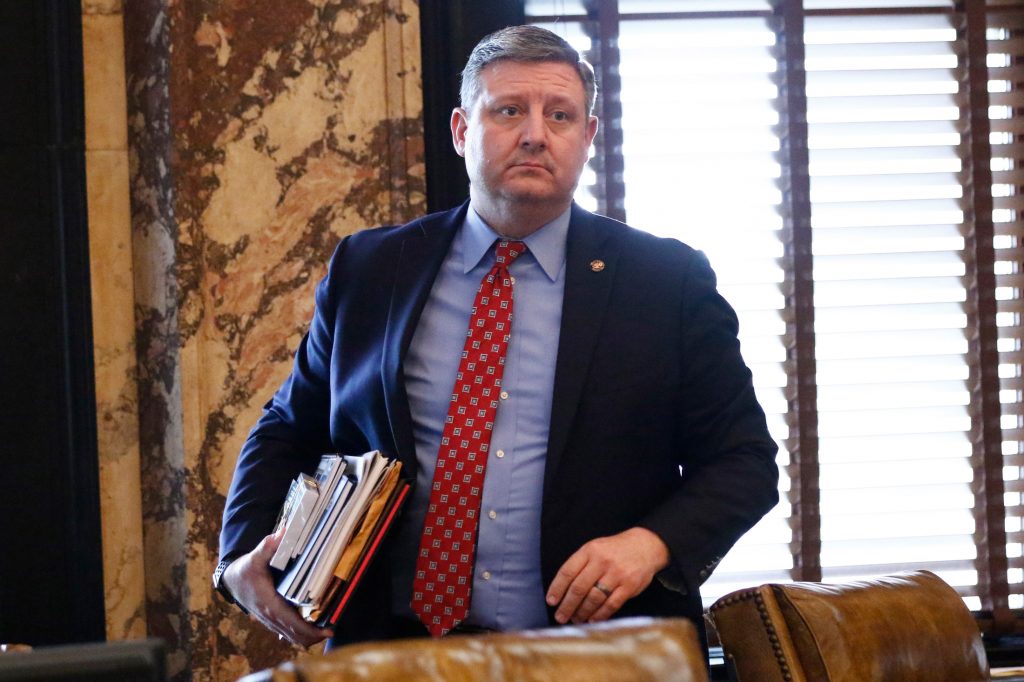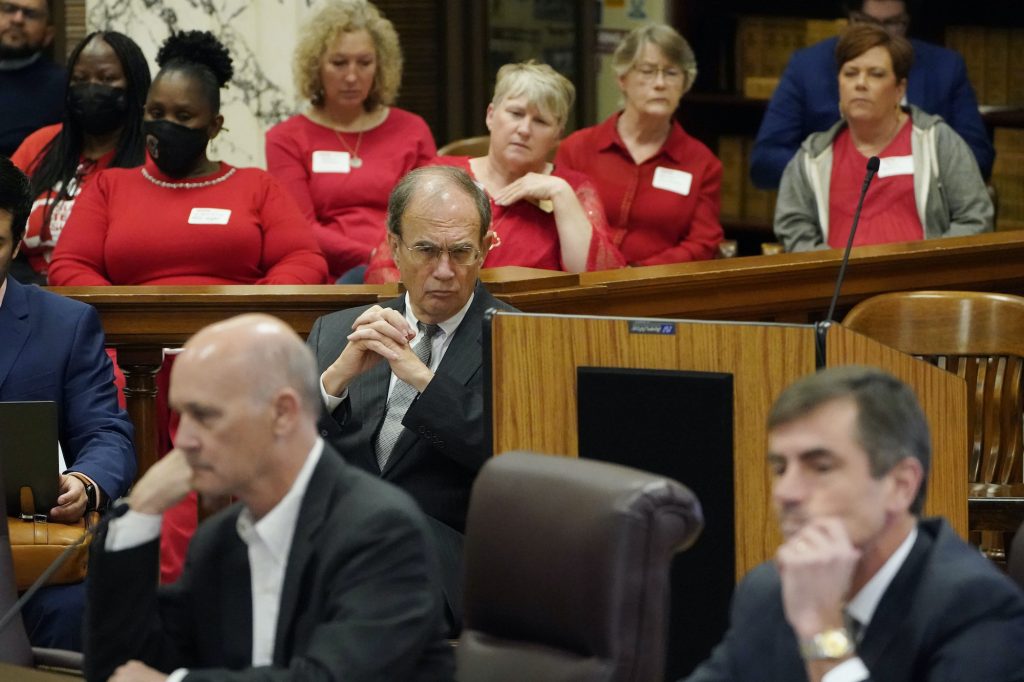Leaders in both chambers of the Mississippi Legislature have reached an agreement on a teacher pay package that would grant the average Mississippi educator a $5,140 pay raise. Teacher’s assistants, who currently make $15,000, would enjoy a $2,000 pay raise.
The conference report proposal for House Bill 530, which House and Senate leaders agreed on after a meeting this morning, will next go to the floors of the two legislative chambers. Earlier this year, the House and Senate passed competing teacher pay raise bills with respective price tags of $210 million and $220 million. After working out their differences in conference, legislative leaders expect the proposal will cost $246 million.
“One of the things we heard is we needed to provide some incentives and motivations for teachers to become teachers, to stay in our state and not leave,” Senate Education Chair Dennis DeBar, R-Leakesville, said during conference this morning as he explained the Senate’s decision to agree with the House’s push for larger initial pay raises than the earlier Senate bill offered.
The average pay raise under the deal lawmakers reached today is even larger than a proposal the House offered last week that would have given teachers an average pay boost of $4,850. The conference package combines the House’s earlier focus on large, immediate pay raises with the Senate’s emphasis on larger pay increases throughout an educator’s career.
‘We’re Often Losing Educators’
Calling it a “historic day,” Mississippi Association of Educators Executive Director Antonio Castanon Luna told the Mississippi Free Press that the proposal will help Mississippi “in all regards” by ensuring the growth of a more educated population. More than 100 educators associated with MAE showed up at the Capitol today to support the effort.
“When we look at recruiting and retaining high quality educators, this raise helps our state move forward. This is going to help educators put food on their tables and support their families as they remain in public education and support our students,” said the MAE director, who was spending the evening in Jackson with teachers and other public education advocates who are celebrating with a fish fry.

Mississippi, where education has suffered from chronic underfunding, has been experiencing a sustained teacher shortage for years that has led some public schools to opt to allow otherwise unqualified people to teach on emergency licenses.
During the conference meeting, Rep. Jansen Owen, R-Poplarville, said that the House’s initial plan focused on front-loading pay raises to combat the recruitment and retainment struggle.
“I’m from Pearl River County so we’re often losing educators to Louisiana,” Owen said. “I know that they are, on the other side of the state, losing educators to Alabama.”
Mississippi educators currently earn a starting salary of about $37,000—the lowest in the nation. Under today’s agreement, starting pay for new Mississippi teachers would rise to an average of $41,638. That would exceed both the southeastern starting average of $39,754 and the national starting average of $41,163.
In addition to the immediate pay raise, the plan would provide yearly step increases of at least $400 every year and $1,200 or more every fifth year. In their 25th year teaching, educators would receive a $2,500 raise. The step increases are the same as in the House proposal last week except for the five year bumps, which began at $1,000 instead of $1,200.
“The only thing that’s different between the two proposals is the Senate proposal has a little bit bigger bump than the House proposal,” said Sen. Hob Bryan, D-Amory. “I haven’t had so much discussion about bumps in this room since we had optometry (legislation) up.”
Under the plan, the pay increases would continue until a teacher’s 35th year, at which point educators with a bachelor’s degree would max out at a $60,800 salary, while those with a doctorate would earn $71,400 per year.
The pay increases would continue until a teacher’s 35th year, at which point educators with a bachelor’s degree would max out at a $60,800 salary, while those with a doctorate would earn $71,400 per year.
‘A Doable Proposal’
The Parents Campaign, a public educator advocacy organization, has raised concerns that efforts in the Senate to cut the state income tax and in the House to eliminate it completely could endanger the pay raises even if they become law—along with other public school funding.
“State budget cuts would almost certainly follow large income tax cuts. Reasonable people see very clearly that any massive reductions in revenue will threaten teacher pay, school funding, & lots of state services we depend upon,” the organization’s president, Nancy Loome, tweeted yesterday, pointing to Kansas’ failed experiment with eliminating its own state income tax.
State budget cuts would almost certainly follow large income tax cuts. Reasonable people see very clearly that any massive reductions in revenue will threaten teacher pay, school funding, & lots of state services we depend upon.#NoIncomeTaxCuts #msleg #DontBeKansas pic.twitter.com/c4AqCRLOri
— The Parents' Campaign (@ParentsCampaign) March 14, 2022
But during this morning’s conference meeting, Sen. DeBar said the pay raises are “a doable proposal.”
“It’s within the budget even with tax cuts that may or may not occur by the end of the session,” he said. “We’re confident with the numbers. We’re confident this can be met.”
Votes Possible This Week
If both chambers pass the bill, Gov. Tate Reeves must still sign it for the pay raises to become law. During a political speech at the Neshoba County Fair last year, the governor proposed raising teacher pay across the board in 2022 by a much smaller $1,300, while proposing $1,000 pay raises in each of the following two years.
Antonio Castanon Luna, the MAE director, told the Mississippi Free Press that the organization will continue pushing to ensure the bill becomes law.

“We are very happy to be able to celebrate this progress and we know that it has to be signed by the governor and we’re ready to continue advocating,” he said.
During the conference meeting today, DeBar said he hoped both chambers would be able to pass the bill “in the next day or two.”
“We want to see this done as quickly as possible,” said Rep. Kent McCarty, R-Hattiesburg, the vice chair of the House Education Committee. “I think it’s long overdue.”
Update: The Mississippi Senate unanimously passed the teacher pay package on March 17, 2022. The Mississippi House must also pass it before it goes to the governor’s desk.
CORRECTION: An earlier version of this story said the package included an average teacher pay raise of $5,150. The correct number is $5,140.










